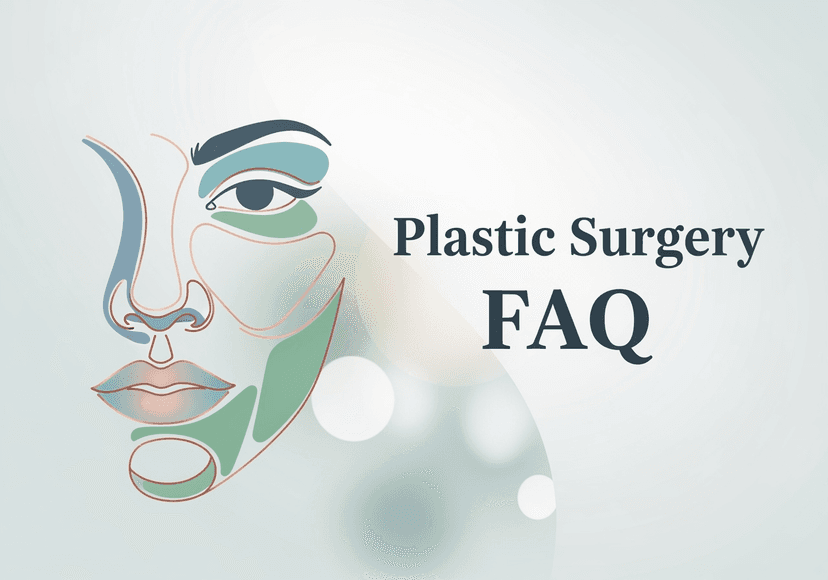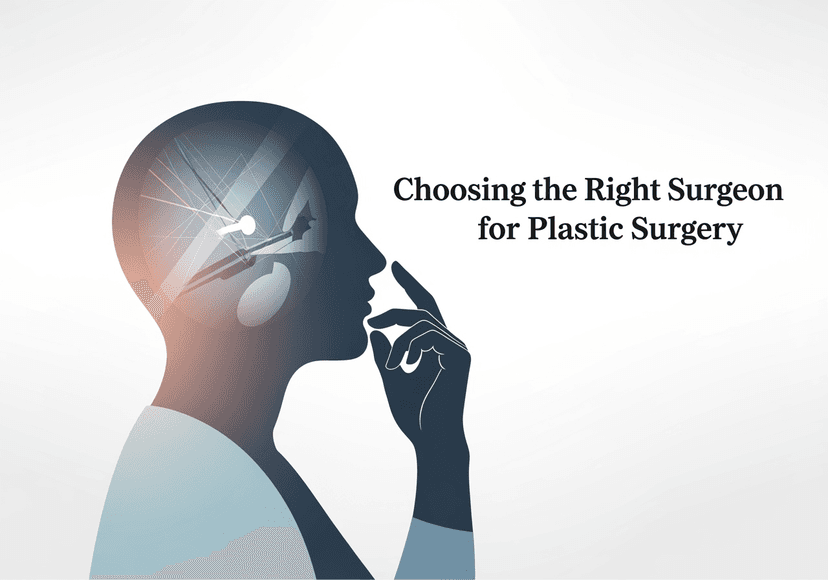
Stepwise Recovery Plan After Kidney Transplant
30 Oct, 2025
 Healthtrip
Healthtrip- Where to Seek Kidney Transplant and Post-Transplant Care
- Why is a Stepwise Recovery Plan Important After Kidney Transplant?
- Who is Involved in Your Post-Kidney Transplant Recovery?
- How to Manage Medications and Potential Complications
- Diet and Lifestyle Adjustments for Kidney Transplant Recipients
- Examples of Successful Kidney Transplant Recovery and Long-Term Health
- Conclusion: Embracing a Healthier Future After Kidney Transplant
Immediate Post-Transplant Period: Weeks 1-4
The first few weeks after your kidney transplant are a period of intense monitoring and adjustment. Your body is adapting to its new kidney, and your medical team at hospitals like Memorial ?i?li Hospital are working diligently to make sure everything is functioning as it should. Expect frequent blood tests to check kidney function, monitor for signs of rejection, and adjust your immunosuppressant medications. These medications are vital to prevent your body from attacking the new kidney, but they also come with potential side effects, so regular monitoring is key. You'll likely feel tired and may experience some pain or discomfort at the incision site. Don't hesitate to ask for pain relief and support from your nurses and doctors. Rest is paramount during this period. Avoid strenuous activities and focus on allowing your body to heal. Eat a healthy, balanced diet and stay hydrated. This is also a time to establish a strong relationship with your transplant team; they are your partners in this journey. Our services at Healthtrip can connect you with expert transplant specialists and provide guidance on managing your medications and attending follow-up appointments, wherever you are in the world.
Most popular procedures in India
Early Recovery Phase: Months 2-6
As you move into the early recovery phase, you'll gradually start to regain your energy and independence. While you'll still need regular check-ups at hospitals like Saudi German Hospital Cairo, the frequency will decrease as your kidney function stabilizes. This is the time to focus on rebuilding your strength and endurance. Start with gentle exercises, such as walking, and gradually increase the intensity as you feel able. Be sure to consult with your doctor or a physical therapist before starting any new exercise program. Maintaining a healthy lifestyle is crucial during this phase. Continue to eat a balanced diet, stay hydrated, and avoid smoking and excessive alcohol consumption. Pay close attention to any changes in your body, such as swelling, fever, or changes in urine output, and report them to your transplant team immediately. Remember that emotional well-being is just as important as physical health. Kidney transplant is a big adjustment and getting support here is crucial to your success and overall well-being. Healthtrip can help you connect with support groups and mental health professionals who understand the unique challenges of post-transplant life.
Wellness Treatments
Give yourself the time to relax
Lowest Prices Guaranteed!

Lowest Prices Guaranteed!
Long-Term Maintenance: 6 Months and Beyond
The long-term maintenance phase is about sustaining the health of your new kidney and preventing complications. You will have fewer clinic visits, but adherence to your medication regimen remains critical. Never stop taking your immunosuppressants without consulting your doctor, even if you feel well. Continue to monitor your blood pressure and kidney function regularly. A healthy lifestyle remains essential. Maintain a balanced diet, exercise regularly, and avoid smoking and excessive alcohol consumption. Be vigilant about preventing infections, as immunosuppressants can weaken your immune system. Get vaccinated against the flu and pneumonia, but avoid live vaccines. Protect your skin from sun exposure, as immunosuppressants can increase your risk of skin cancer. Stay connected with your transplant team and report any changes in your health promptly. With Healthtrip, you can access ongoing support and resources to help you maintain your health and well-being for years to come. Whether it's finding a specialist for a second opinion or navigating insurance coverage for your medications, we're here to ensure you continue to receive the best possible care at facilities like Yanhee International Hospital.
Where to Seek Kidney Transplant and Post-Transplant Care
Embarking on a kidney transplant journey is a monumental step towards regaining health and vitality. One of the most crucial decisions you'll make is choosing the right medical facility and team for your transplant and subsequent post-transplant care. This selection can significantly impact your overall experience and the success of your recovery. Consider large, reputable hospitals with established transplant programs. These centers often have a wealth of experience, advanced technology, and multidisciplinary teams comprising nephrologists, surgeons, transplant coordinators, and specialized nurses. For instance, Fortis Memorial Research Institute in Gurgaon and Max Healthcare Saket in New Delhi, India are renowned for their comprehensive transplant programs. Similarly, internationally, institutions like Singapore General Hospital and Mount Elizabeth Hospital in Singapore, or perhaps even Yanhee International Hospital or Vejthani Hospital in Bangkok, Thailand offer cutting-edge facilities and experienced teams. Even within Europe, Quironsalud Hospital Toledo in Spain or Helios Klinikum Erfurt in Germany present viable options depending on your specific needs and preferences. Don’t hesitate to research patient reviews, success rates, and the hospital's commitment to long-term follow-up care. This proactive approach ensures you find a center that resonates with your individual requirements and provides the best possible foundation for your post-transplant journey with Healthtrip.
Factors to Consider When Choosing a Transplant Center
The journey to a successful kidney transplant extends far beyond just the surgical procedure; it's a comprehensive, long-term commitment that requires careful consideration of numerous factors. When evaluating potential transplant centers, prioritize those with a proven track record of successful transplant outcomes. This data is often publicly available or can be obtained directly from the hospital. Look into the qualifications and experience of the transplant team, ensuring they have expertise in managing both the surgical and medical aspects of transplantation. Is the hospital easily accessible for you and your family? This consideration is particularly vital for post-transplant follow-up appointments, which can be frequent, especially in the initial months. The availability of comprehensive support services, such as nutritional counseling, psychological support, and financial guidance, is also crucial. Consider hospitals like Saudi German Hospital Cairo in Egypt, where they have a multidisciplinary approach to patient care. Moreover, inquire about the center's approach to immunosuppression management and their protocols for preventing and treating rejection episodes. A detailed understanding of these factors will empower you to make an informed decision and select a transplant center that aligns perfectly with your individual medical needs and personal circumstances, paving the way for a smoother and more successful post-transplant journey with Healthtrip's support.
Why is a Stepwise Recovery Plan Important After Kidney Transplant?
A kidney transplant is not just a surgical event; it's the beginning of a new chapter in your life, one that demands a structured and meticulous approach to recovery. A stepwise recovery plan is essential because it provides a roadmap for navigating the complexities of post-transplant care. Think of it as a carefully orchestrated symphony, where each phase is precisely timed and contributes to the overall harmony of your well-being. During the initial weeks and months following the transplant, your body is adapting to the new kidney, and your immune system is intentionally suppressed to prevent rejection. This period requires close monitoring of kidney function, medication levels, and potential complications. A stepwise plan ensures that these crucial aspects are closely managed, allowing for timely interventions if needed. As you progress through the recovery process, the plan helps you gradually resume your normal activities, while also emphasizing the importance of long-term adherence to medications, healthy lifestyle choices, and regular follow-up appointments. Without a structured plan, you risk feeling overwhelmed, potentially missing crucial steps in your care, and inadvertently increasing the risk of complications. With a well-defined stepwise recovery plan, you're not just surviving; you're thriving, empowered to reclaim your health and live life to the fullest, guided by the expertise and support facilitated by Healthtrip.
Key Components of a Stepwise Recovery Plan
A robust stepwise recovery plan after a kidney transplant comprises several essential components, each designed to support your healing and long-term health. Firstly, medication management is paramount. Your plan should detail the precise dosages and timing of your immunosuppressant medications, as well as strategies for managing any potential side effects. Secondly, regular monitoring of kidney function is crucial. This involves frequent blood tests and urine analyses to assess how well your new kidney is functioning and detect any early signs of rejection. Your recovery plan should clearly outline the frequency and types of tests required, as well as the communication protocols for reporting results to your transplant team. Thirdly, lifestyle modifications play a pivotal role. This includes adopting a healthy diet, engaging in regular physical activity, and avoiding smoking and excessive alcohol consumption. Your plan should provide specific guidance on these lifestyle changes, tailored to your individual needs and preferences. Fourthly, infection prevention is critical due to the immunosuppressed state. This involves practicing good hygiene, avoiding close contact with sick individuals, and receiving recommended vaccinations. Your plan should outline strategies for minimizing your risk of infection and promptly addressing any symptoms that may arise. Finally, emotional support is essential for navigating the psychological challenges of post-transplant recovery. This could involve individual counseling, support groups, or simply having a strong network of family and friends. By addressing all these aspects of recovery, your stepwise plan ensures a holistic and well-rounded approach to your post-transplant journey, allowing you to optimize your health and well-being with assistance from Healthtrip.
Who is Involved in Your Post-Kidney Transplant Recovery?
Navigating the post-kidney transplant landscape is a team effort, and understanding the roles of the various healthcare professionals involved is crucial for a successful recovery. Think of it as a well-coordinated orchestra, where each musician plays a vital part in creating a harmonious symphony of healing. Your nephrologist, a kidney specialist, is the primary conductor of your care, overseeing your overall medical management, adjusting medications, and monitoring kidney function. The transplant surgeon, who performed the operation, continues to play a role in your care, particularly in the initial post-transplant period, addressing any surgical-related concerns. Transplant coordinators are invaluable points of contact, helping you navigate appointments, manage paperwork, and answer your questions. Specialized nurses provide essential hands-on care, monitoring your vital signs, administering medications, and educating you about self-care practices. Dietitians offer guidance on nutrition, helping you develop a healthy eating plan that supports kidney function and overall well-being. Pharmacists ensure you understand your medications, potential side effects, and any interactions with other drugs you may be taking. Social workers and psychologists provide emotional support, helping you cope with the stress and anxiety associated with transplant recovery. And, your family and friends form the vital support system, cheering you on, providing practical assistance, and offering unwavering love and encouragement. This collaborative approach, facilitated through Healthtrip, ensures that all aspects of your well-being are addressed, empowering you to navigate your post-transplant journey with confidence and achieve optimal health.
The Importance of Communication with Your Healthcare Team
Effective communication with your healthcare team is the cornerstone of a successful kidney transplant recovery. Open and honest dialogue ensures that everyone is on the same page, allowing for proactive management of potential issues and optimal coordination of care. Don't hesitate to ask questions, no matter how trivial they may seem. Your healthcare team is there to provide you with the information you need to make informed decisions about your health. Be proactive in reporting any new symptoms or changes in your condition. Early detection of potential problems can often prevent them from escalating into more serious complications. Maintain a detailed record of your medications, including dosages and timing, and bring this list with you to all your appointments. If you're unsure about something, clarify it with your healthcare provider. Don't assume anything. Remember, your healthcare team is your ally in this journey. Build a strong relationship with each member, fostering mutual trust and respect. This collaborative approach, facilitated through Healthtrip, will not only empower you to take control of your health but also ensure that you receive the best possible care throughout your post-transplant recovery. Consider keeping a journal to track your symptoms, medications, and questions. This can be a valuable tool for communicating effectively with your healthcare team and ensuring that all your concerns are addressed.
Also Read:
How to Manage Medications and Potential Complications
Managing medications after a kidney transplant can feel like navigating a complex maze, but understanding the process is key to long-term success. Immunosuppressants are the cornerstone of your post-transplant regimen. These medications, such as tacrolimus, cyclosporine, and mycophenolate, work by suppressing your immune system, preventing it from attacking your new kidney. It’s essential to take these medications exactly as prescribed, at the same time every day. Missed doses can increase the risk of rejection, while too much of a medication can lead to toxic side effects. Regular blood tests are crucial to monitor the levels of these drugs in your system, ensuring they are within the therapeutic range. Your transplant team at hospitals like Fortis Memorial Research Institute, Gurgaon or Max Healthcare Saket will work closely with you to adjust dosages as needed. Don't hesitate to ask questions about your medications, their potential side effects, and any interactions they might have with other drugs or supplements. Keeping a detailed medication schedule and using reminders can also help you stay on track. Remember, consistency is your best friend in this journey!
Beyond immunosuppressants, you may also need to manage other medications to address specific health concerns. These might include antihypertensives to control blood pressure, antibiotics to prevent infections, or medications to manage diabetes. Each of these medications plays a vital role in supporting your overall health and kidney function. Regular check-ups at facilities such as Saudi German Hospital Cairo, Egypt are essential to monitor your health and adjust your medication regimen as needed. Monitoring for potential complications is also a critical part of post-transplant care. Rejection is a serious concern, and early detection is key to successful treatment. Signs of rejection can include fever, decreased urine output, weight gain, swelling, and pain or tenderness around the kidney. If you experience any of these symptoms, contact your transplant team immediately. Infections are another potential complication, as immunosuppressants weaken your body's natural defenses. Practice good hygiene, avoid crowded places, and get vaccinated to minimize your risk. Remember, early detection and prompt treatment can help you overcome complications and maintain your kidney's health for years to come.
Also Read:
Diet and Lifestyle Adjustments for Kidney Transplant Recipients
A kidney transplant isn't just about surgery; it's a lifestyle overhaul! And guess what? Your diet becomes your new best friend. Think of food as medicine, fueling your body and protecting your precious new kidney. The goal? A balanced, healthy diet that supports your immune system, keeps your blood pressure in check, and helps you maintain a healthy weight. Imagine yourself consulting with a dietician at renowned hospitals like Vejthani Hospital or Bangkok Hospital. They can craft a personalized meal plan, considering your individual needs and preferences. It's all about embracing a rainbow of fruits and vegetables, lean proteins, and whole grains. Say "adios" to processed foods, sugary drinks, and excessive salt. They're the villains in our kidney-friendly saga! It is also important that you monitor your intake of potassium, phosphorus, and sodium levels, as these minerals can affect your kidney function if they are too high or too low. Your transplant team will advise you on the appropriate levels for you. Staying hydrated is also paramount as it helps your kidney to function properly.
But it's not just about what you eat; it's also about how you live. Regular exercise is your secret weapon! It boosts your immune system, improves your mood, and helps you maintain a healthy weight. Aim for at least 30 minutes of moderate-intensity exercise most days of the week. Walking, swimming, cycling – pick activities you enjoy! But consult with your healthcare team at places like Fortis Hospital, Noida before starting any new exercise routine. Remember, slow and steady wins the race! Kick those unhealthy habits to the curb! Smoking and excessive alcohol consumption can wreak havoc on your body and increase your risk of complications. Find healthy ways to manage stress, like yoga, meditation, or spending time in nature. And last but not least, prioritize sleep. Aim for 7-8 hours of quality sleep each night. It's when your body repairs and rejuvenates itself. Embrace these lifestyle changes, and you'll be well on your way to a healthier, happier, and kidney-stronger you!
Also Read:
Examples of Successful Kidney Transplant Recovery and Long-Term Health
Hearing stories of successful kidney transplant recipients can be incredibly inspiring and provide hope for those undergoing or considering the procedure. These stories highlight the potential for a full and active life after transplantation. Consider the story of Sarah, who received a kidney transplant at Memorial Sisli Hospital after years of dialysis. Following her transplant, she diligently followed her medication regimen, embraced a healthy lifestyle, and maintained regular check-ups. Today, she's back to pursuing her passion for hiking and traveling, living life to the fullest! Or consider David, who underwent a kidney transplant at Quironsalud Hospital Murcia. Initially hesitant about the necessary lifestyle changes, he gradually adopted a kidney-friendly diet and incorporated regular exercise into his routine. Now, he feels healthier and more energetic than he has in years. These stories are not just anecdotes; they represent the reality for many transplant recipients who commit to their post-transplant care.
Beyond individual stories, research studies also demonstrate the long-term success of kidney transplantation. Studies have shown that kidney transplant recipients have a significantly longer life expectancy compared to those who remain on dialysis. They also experience improved quality of life, including increased energy levels, better appetite, and greater independence. Factors contributing to successful outcomes include adherence to medication regimens, regular monitoring by transplant teams, and the adoption of healthy lifestyle habits. Hospitals like Mount Elizabeth Hospital and Singapore General Hospital are renowned for their comprehensive transplant programs and dedication to patient care. These institutions emphasize patient education, support groups, and personalized care plans, all of which contribute to positive outcomes. By learning from the experiences of others and embracing the principles of post-transplant care, you can increase your chances of a successful recovery and a long, fulfilling life after kidney transplantation. Remember, you are not alone on this journey, and countless success stories await you!
Conclusion: Embracing a Healthier Future After Kidney Transplant
Undergoing a kidney transplant is a significant milestone, offering a new lease on life and improved quality of life. However, it's crucial to understand that the journey doesn't end with the surgery; it's just the beginning of a lifelong commitment to your health and well-being. Embracing a healthier future after a kidney transplant requires a holistic approach that encompasses medication management, dietary adjustments, regular exercise, and close monitoring by your healthcare team. Think of it as a partnership between you and the dedicated medical professionals at facilities such as Cleveland Clinic London or NMC Specialty Hospital, Al Nahda, Dubai. Your adherence to medication regimens is paramount in preventing rejection and maintaining kidney function. Regular blood tests and check-ups allow your transplant team to monitor your health and make necessary adjustments to your treatment plan.
Adopting a kidney-friendly lifestyle is equally important. This includes following a balanced diet, staying hydrated, engaging in regular physical activity, and avoiding unhealthy habits like smoking and excessive alcohol consumption. These lifestyle changes not only support your kidney function but also contribute to your overall health and well-being. Remember, a kidney transplant isn't just about extending your lifespan; it's about enhancing your quality of life. It's about regaining your energy, pursuing your passions, and spending time with loved ones. By embracing a healthier future and actively participating in your post-transplant care, you can unlock the full potential of your new kidney and live a long, fulfilling life. Healthtrip is here to support you every step of the way, providing access to world-class medical facilities, experienced transplant teams, and valuable resources to help you navigate your post-transplant journey with confidence and optimism.
Related Blogs

Frequently Asked Questions About Plastic Surgery
Detailed insights into plastic surgery – doctors, hospitals, technology, recovery,

Advanced Robotic Technology Used in Plastic Surgery
Detailed insights into plastic surgery – doctors, hospitals, technology, recovery,

How Healthtrip Supports Foreign Patients for Plastic Surgery in India
Detailed insights into plastic surgery – doctors, hospitals, technology, recovery,

Top Medical Packages for Plastic Surgery Offered by Healthtrip
Detailed insights into plastic surgery – doctors, hospitals, technology, recovery,

Stepwise Recovery Plan After Plastic Surgery
Detailed insights into plastic surgery – doctors, hospitals, technology, recovery,

Choosing the Right Surgeon for Plastic Surgery
Detailed insights into plastic surgery – doctors, hospitals, technology, recovery,










